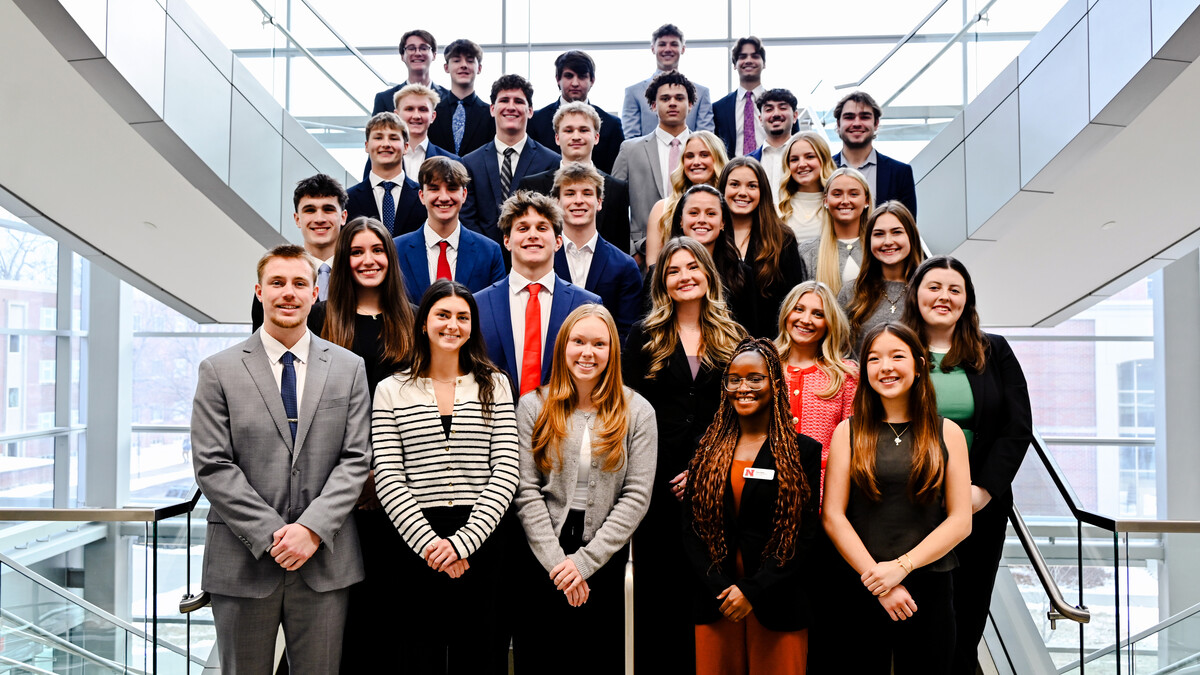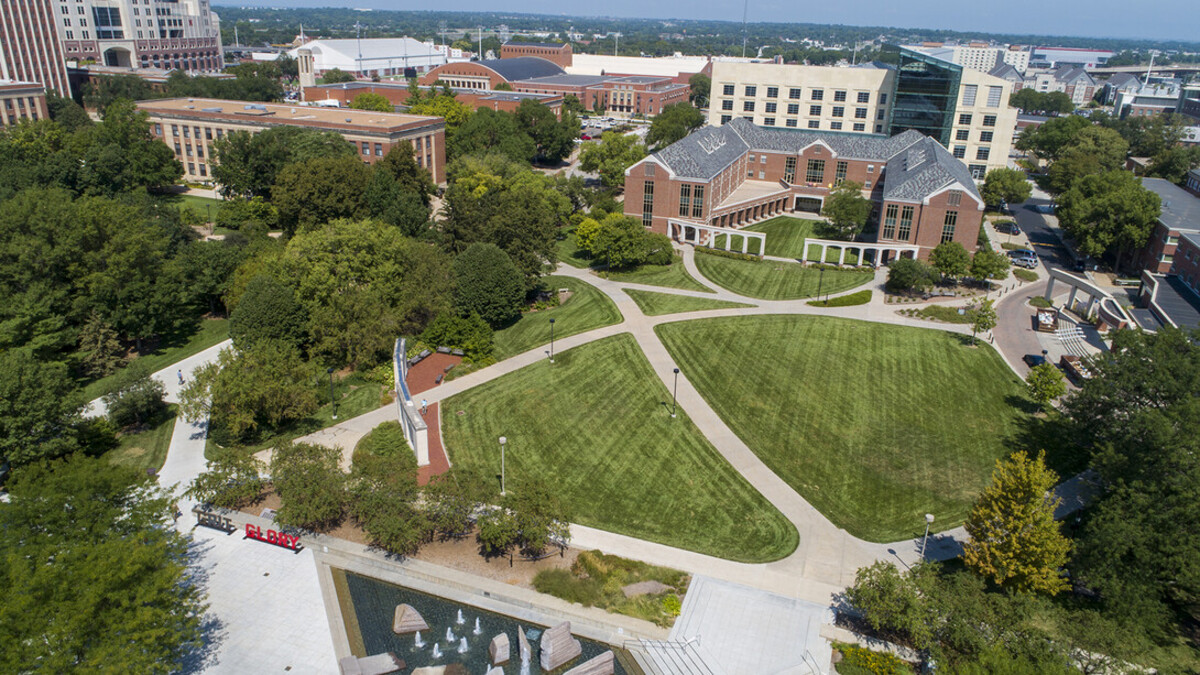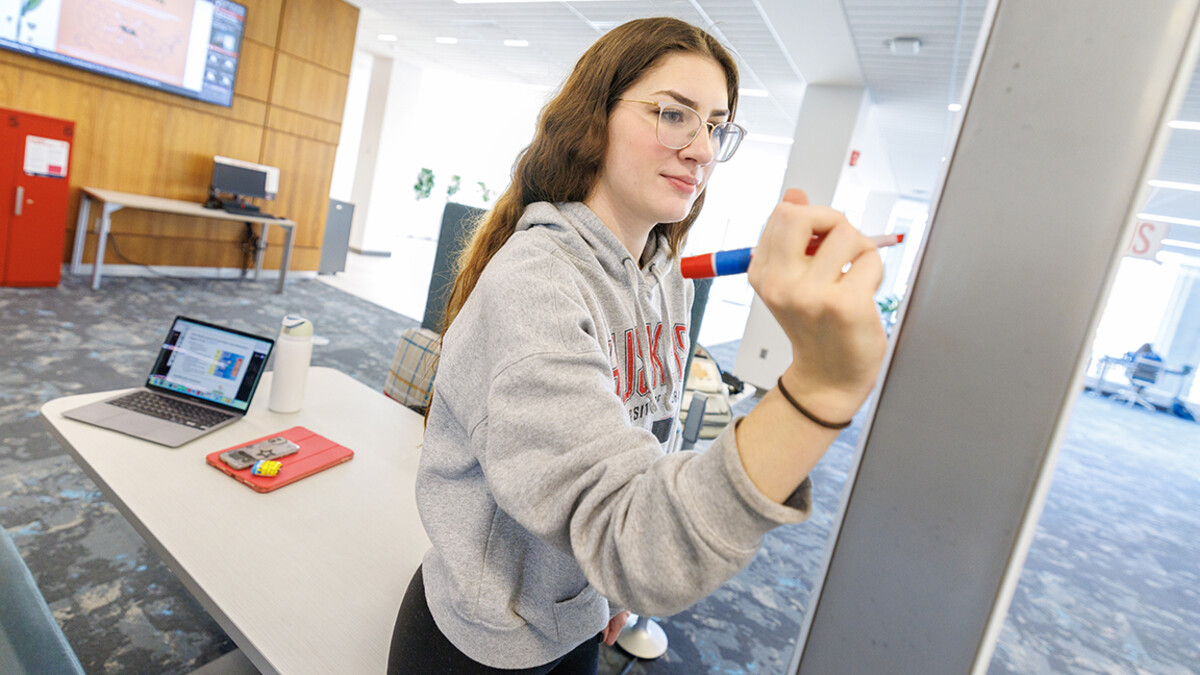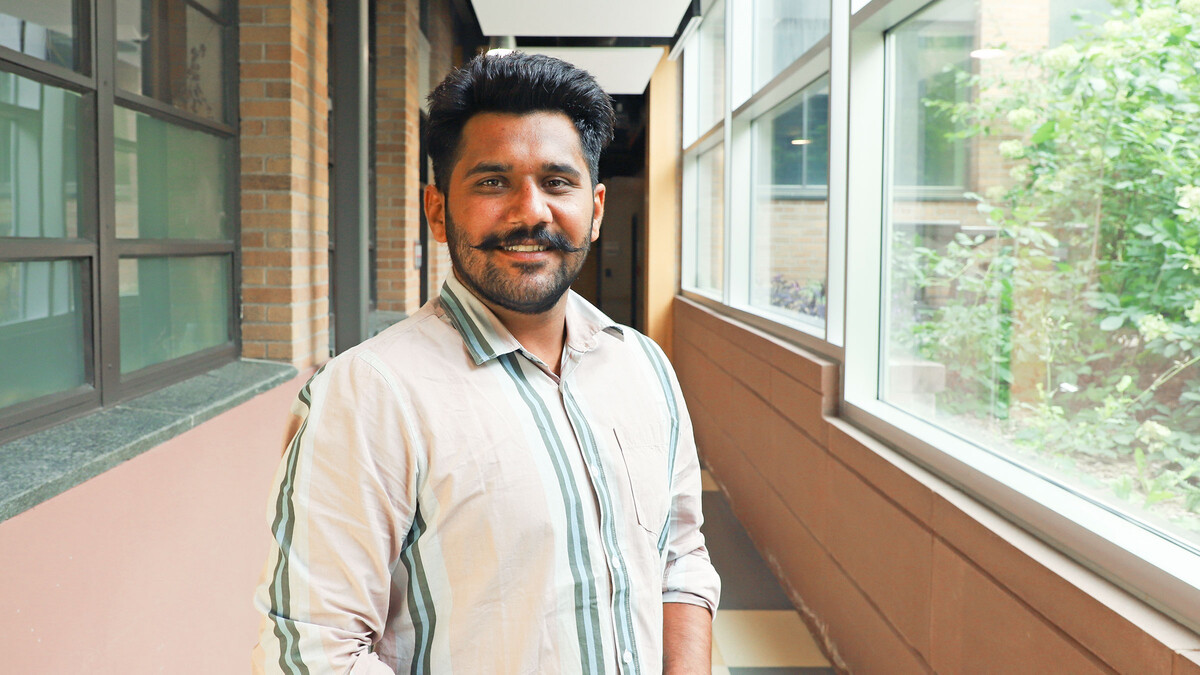
Frans von der Dunk, Perlman Alumni and Othmer Professor of Space Law at the University of Nebraska–Lincoln, was interviewed for five national news stories in July. The stories were among 40-plus featuring Husker faculty, staff, students, centers and programs during the month.
Von der Dunk was quoted in a July 19 Christian Science Monitor article on whether the new space era needs new rules. “The idea of commercial space flight, which is of course what (Amazon founder Jeff) Bezos is all about, was nowhere on the horizon (and) has not been dealt with in any detail,” he said. Yahoo! News picked up the story.
He was the featured guest on The TeachPitch Podcast on July 22. He discussed his career path, the future of space travel, whether SpaceX can enforce its own legal system on Mars and what happens when someone is killed in space.
Von der Dunk was interviewed for a July 23 Business Insider article on rapper Lil Uzi Vert claiming he’s in the process of “legally” buying planet WASP-127b. “If someone sold him a planet or he thinks he owns this planet in the normal sense of the word, it’s simply not true,” he said. “It’s fraud.” He pointed to the 1967 Outer Space Treaty, which forbids all nations and their citizens from claiming territory in outer space. More than a dozen media outlets picked up the story.
He was interviewed for a July 24 Business Insider article on space tourism. He said the risk of space flight would likely deter the general public if the hefty price tag doesn’t. He added that the flights would have to be more enticing to tourists. “Right now, these flights are just a sophisticated form of bungee jumping,” he said. Yahoo! News picked up the story.
Von der Dunk was also interviewed for a July 31 Business Insider article on space tourists flying at their own risk. He said that while space-tourism companies will not be held responsible for any injuries or fatalities suffered by flight participants, the companies are being held to high standards when it comes to third parties on the ground. The groups are subject to thorough reviews before each flight to ensure the spacecrafts will not harm bystanders on departure or re-entry. Yahoo! News picked up the story.
More coverage:
Nebraska Athletics’ #NILbraska initative was featured in a July 1 Sports Illustrated article on the NIL arms race. The new initiative aims to educate Husker student-athletes on branding, marketing, financial literacy and other topics related to name, image and likeness. Garrett Klassy, interim athletic director, and Joe Petsick, management, were featured in the story.
Dawn O. Braithwaite, interpersonal and family communication, was interviewed for a July 1 Yahoo! Life article on the debate over singer and actress Jana Kramer’s use of the term “single mom.” Braithwaite said such “address terms” are an important way to “help us understand our place in the world” but that people should tread carefully when choosing a term, especially when another parent is involved. She said that “co-parent” is a popular choice that encourages cooperation and allows some flexibility.
Braithwaite also wrote a July 15 Psychology Today article on why communication matters. She wrote that people communicate to create, maintain and change relationships and themselves.
Carrie Heitman, anthropology, is working to document and preserve sites in the Chaco Culture National Historical Park. A video on the research was the Video of the Day July 4 on Earth.com.
Dave Aiken, agricultural economics, was interviewed for a July 7 DTN Progressive Farmer article on things for ag producers to consider before enrolling in carbon programs. Aiken said most people are waiting for the Growing Climate Solutions Act to become law. The bill would allow the U.S. Department of Agriculture to set standards for carbon markets and create a certification program. “Until that’s in place, we really don’t have standards,” he said. “It’s really buyer beware, seller beware. Everybody is kind of on their own.”
Greg Ibach, undersecretary-in-residence in the Institute of Agriculture and Natural Resources, wrote a recent guest column on reimagining federal conservation programs. He called for shifting from the current practice-driven model to an outcomes-based one. The shift “would open the door to rewarding farmers, ranchers, industry partners and others that already have conservation efforts in place … while also providing incentives for adopting new and innovative practices,” he wrote. AgriPulse ran the guest column July 7.
Kate Lyons, biological sciences, was cited in a July 10 Gizmodo article on birds being modern-day dinosaurs. She said there “isn’t just one smoking gun” that allows paleontologists to say birds are dinosaurs, but there are “multiple pieces of evidence” that point to this conclusion.
The Food Processing Center’s National Food Entrepreneur Program and its Recipe to Reality Seminar were featured in a July 11 Food Processing article on university food incubators. Terry Howell Jr., executive director of the center, was interviewed for the story.
The U.S. Drought Monitor — produced jointly by the university’s National Drought Mitigation Center, the National Oceanic and Atmospheric Administration and the U.S. Department of Agriculture — was cited in CNN.com, FOX News, WIRED and Yahoo! News articles on drought conditions in the American West.
Katherine LaTourrette, a doctoral student in complex biosystems, and colleagues have found that mutations in the COVID-causing SARS-CoV-2 virus closely resemble those of its nearest relatives, the betacoronaviruses. Those similarities could help predict how SARS-CoV-2 will continue to evolve. KLKN, Bioengineer.org and Scienmag ran articles on the research.
Trev Alberts was named athletic director at Nebraska on July 14. Stories on the announcement appeared in more than two dozen Nebraska media outlets, CBS Sports, ESPN, MSN.com, Yahoo! Sports and 350-plus other media outlets.
Jeffrey Stevens, psychology, director of the Canine Cognition and Human Interaction Lab, was interviewed for a July 14 Smithsonian Magazine article on a new study showing that dogs don’t return the favor after strangers feed them. Stevens, who was not involved with the study, said experiments should be designed from the perspective of the dog, not the human, so they can easily recognize the task at hand.
Megan Elliott, founding director of the Johnny Carson Center for Emerging Media Arts, wrote an essay to accompany the release of the National Endowment for the Arts report “Tech as Art: Supporting Artists Who Use Technology as a Creative Medium.” Of the Carson Center, she said: “Our goal is to produce transformative, creative leaders by building the ultimate student-centric program, whereby every graduate is able to invent the job or career path of their imagination or raise the funds necessary to start the company they envision straight out of school.”
With the help of a 3D printer at Nebraska Innovation Studio, five Nebraska Engineering students recently fabricated a prosthetic leg prototype for Olive, a young tabby cat missing the lower half of her left foreleg. 3DPrint.com published a July 15 article on the senior project.
John Fech, Nebraska Extension educator, wrote a July 15 article for GCM on golf course tree care, offering best practices and what to avoid.
University of Nebraska–Lincoln Chancellor Ronnie Green and University of Wisconsin-Madison Chancellor Rebecca Blank co-wrote a guest column calling for increased agricultural research and development funding at the federal level. “Significant investments are needed to win the R&D race and keep our family farms and rural America in business,” they wrote. AgriPulse ran the column July 19.
Kathleen Lodl, associate dean of Nebraska Extension and Nebraska 4-H program leader, discussed county fair season in Nebraska during a July 20 segment on RFD-TV. Nebraska 4-H worked with local fair boards and other groups to make sure youth events could safely continue during the COVID-19 pandemic, and some changes — such as livestreaming — have carried over to 2021.
Ivan Vechetti and Yuan Wen, both nutrition and health sciences, were part of a recent multi-institutional study suggesting that weight training may shrink fat. The study found that after weight training, muscles create and release little bubbles of genetic material that can flow to fat cells, jump-starting processes there related to fat burning. The New York Times published a July 21 article on the research.
Top administrators at the University of Nebraska have said they have “significant concerns” about a proposed resolution from Regent Jim Pillen seeking to curb the teaching of critical race theory across the system. In an email to students, faculty and staff, President Ted Carter and chancellors from each campus said university leaders would work to “vigorously protect and defend academic freedom” at NU. Stories on the statement appeared in KHGI/KFXL, KOLN/KGIN, KPTM, the Lincoln Journal Star, the Omaha World-Herald, The Federalist and Inside Higher Ed.
Carrick Detweiler, computer science and engineering and CEO and co-founder of Drone Amplified, was interviewed for a July 23 article in The Hill on drones being used to fight fire in the American West. Drone Amplified’s IGNIS system involves a drone that drops pingpong-ball-sized incendiary devices for controlled burns of vegetation.
Timothy Schaffert, English, director of the creative writing program, offered his five top books on art and culture in Nazi-occupied Paris for The Wall Street Journal’s “Five Best” feature on July 23.
He also wrote a July 26 article titled “Culture of Fragrance: Jewish Perfumers in the Twentieth Century” for The Jewish Book Council.
A review of Schaffert’s new novel, “The Perfume Thief,” was published in the July issue of Booklist. The book will be released Aug. 3.
Ongoing research by Mark Pegg, School of Natural Resources, and Husker students was highlighted in a July 23 outdoors column in the Grand Forks (North Dakota) Herald. The researchers are tagging channel catfish in the U.S. portion of the Red River in the fight against invasive zebra mussels. The story was picked up by about a dozen media outlets.
Charles Francis, agronomy and horticulture, was quoted in a July 26 Modern Farmer article on companies engaging in agricultural greenwashing — promoting an environmentally friendly or sustainable initiative to divert attention from other, more harmful business practices. Francis encouraged consumers to look at a company’s mission statement. “I would also look at their track record on past projects, what kinds of other things have they done and what have been the reports,” he said.
Sheila Purdum, animal science, was interviewed for a July 26 Successful Farming article on how to keep chickens cool. She recommended providing the birds plenty of cool water, fans and ventilation, an electrolyte solution and space to move around.
Yongfeng Lu, electrical and computer engineering, and colleagues have developed a simple, inexpensive method for guarding carbon fiber against oxidation. Phys.org ran a July 26 article on the research.
Chigozie Obioma, English, an internationally recognized author, was one of the judges who helped narrow 158 books to a 13-book longlist for the 2021 Booker Prize. He was mentioned in stories on the longlist in The New York Times and more than a dozen other media outlets.
Faculty, administration, student and staff appearances in the national media are logged at http://newsroom.unl.edu/inthenews. If you have additions to this list, contact Sean Hagewood at shagewood2@unl.edu or 402-472-8514. If you have suggestions for national news stories, contact Leslie Reed at lreed5@unl.edu or 402-472-2059.







